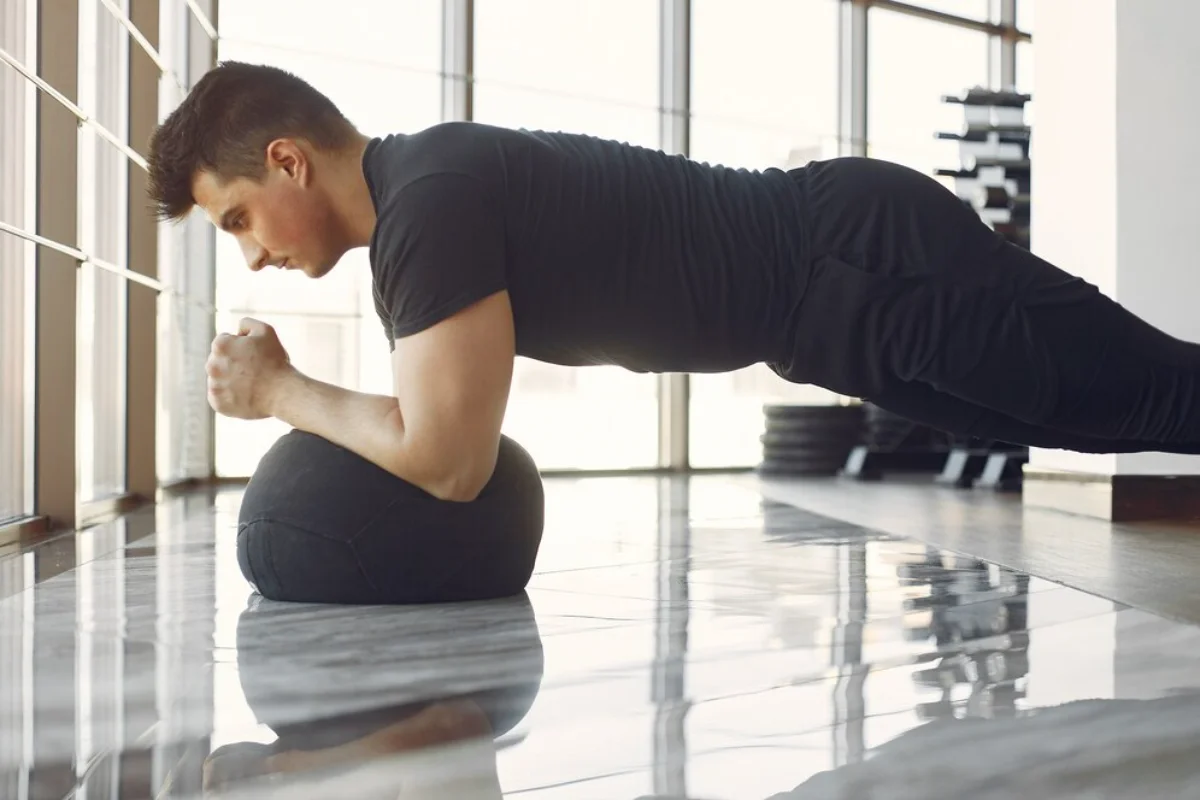
The Benefits of Core Strength Beyond Aesthetics
As we tie this introduction together, let’s address your training background. Strengthening your core does wonders beyond appearances; it’s essential for vibrant health and smooth movement. In this blog, we’ll dive into the multifaceted advantages of core strength. You’ll discover its crucial role in stability, fluid movement, and athletic prowess. Get ready to unveil how a strong core enhances daily life and elevates your athletic game.

Why Core Strength Matters
Core Stability: The Foundation of Movement
Core stability is the strength of your torso, supporting the spine like a sturdy pillar. This muscular foundation is essential for safe, efficient movements in daily life or athletic pursuits. A strong core ensures you can tackle everything from mundane chores to exhilarating sports without risking injury or unnecessary strain. Think of it as your body’s power centre, anchoring every action with grace and strength.
Core stability is your backbone’s best friend. It promotes perfect posture, minimises back pain, and fine-tunes your body’s mechanics. Imagine lifting a heavy object from the ground: a stable core is your safety net. It guards against injury and ensures every move is precise and powerful.
Functional Movement: Enhancing Everyday Activities
Functional movement is like practice for life’s daily tasks. It enhances your ability to navigate everyday activities with ease. A robust core is the backbone of this functionality. It supports your body, ensuring balance and coordination in every move. Strength matters when bending to tie your shoelaces or reaching for a high shelf. Twisting to grab something from the backseat of your car? A strong core makes these motions smooth and safe.
Moreover, core strength is the backbone of balance and stability. It reduces the risk of falls and injuries, keeping you on your feet. This is vital for older adults, who often navigate the tricky terrain of aging. Strengthening the core helps counteract the challenges of balance and mobility.
Athletic Performance: Elevating Physical Abilities
Core strength is the secret weapon for athletes. It builds a solid foundation for explosive moves, swift agility, and enduring stamina. A robust core empowers athletes to unleash power, boost speed, and maintain perfect body alignment in every dynamic endeavour.
For example, runners benefit from a strong core as it helps maintain an efficient stride and reduces fatigue risk. Similarly, in sports like tennis or golf, core strength is essential for executing powerful swings and maintaining balance during rapid changes in direction.

Step-by-Step Guide to Building Core Strength
Building core strength doesn’t require a gym membership or fancy equipment. It can be achieved through a series of targeted exercises that can be performed at home or in the gym. Here is a step-by-step guide to building a strong core:
Step 1: Understanding the Core Muscles
Before diving into exercises, it’s essential to understand the core muscles. The core is not just the abdominal muscles; it includes the pelvic floor muscles, obliques, diaphragm, and lower back muscles. Recognising these components helps in targeting the entire core effectively.
Step 2: Incorporating Basic Exercises
Start with basic exercises that target the core muscles. Planks, bridges, and leg raises are excellent starting points. These exercises engage multiple muscle groups and can be modified to increase intensity as strength improves.
Step 3: Progressing to Advanced Exercises
As core strength builds, incorporate more advanced exercises such as Russian twists, bicycle crunches, and hanging leg raises. These exercises challenge the core further and help in developing endurance and stability.
Step 4: Integrating Functional Movements
To enhance functional movement, incorporate exercises that mimic everyday activities. Squats, lunges, and rotational movements engage the core and improve overall body mechanics.
Step 5: Consistency and Variation
Consistency is key to building core strength. Aim to perform core exercises at least three times a week. Additionally, vary the exercises to target different muscle groups and prevent plateaus.

Additional Expert Tips & Common Mistakes to Avoid
Best Practices for Core Training
- Focus on Form: Proper form is crucial in core exercises to prevent injury and maximise effectiveness. Pay attention to body alignment and engage the core throughout each movement.
- Breathing Techniques: Proper breathing during workouts boosts core strength and stability. Exhale during exertion and inhale during relaxation.
- Balance and Stability: Include exercises challenging balance and stability, such as single-leg stands or stability ball exercises. These movements engage the core and improve overall coordination.
Common Mistakes and Misconceptions
- Overemphasis on Aesthetics: Focusing solely on achieving visible abs can lead to neglecting other core muscles. Aim for balanced strength across all core components.
- Ignoring Pain: If an exercise causes pain, it may indicate improper form or overexertion. Listen to your body and modify exercises as needed.
- Neglecting Rest and Recovery: Rest is essential for muscle recovery and growth. Ensure adequate rest between workouts to prevent fatigue and injury.
Advanced Insights and Expert Recommendations
Integrating Core Training into Overall Fitness
Weave core training into your fitness tapestry to unleash the power of your core. Pair it with heart-pumping cardio, muscle-building strength sessions, and soothing flexibility routines. They create a harmonious fitness symphony, ensuring a balanced and robust you.
Personalised Core Training Plans
Consider working with a fitness professional to develop a personalised core training plan. A tailored approach ensures exercises are suited to individual fitness levels and goals, optimising results.
The Role of Nutrition in Core Strength
Nutrition is the cornerstone of core strength, a crucial foundation. A balanced diet bursting with protein, healthy fats, and complex carbs fuels muscle growth. This symphony of nutrients aids recovery and orchestrates your body’s performance. Staying hydrated and taking your fitness seriously is your secret weapon, boosting well-being and enhancing every effort.


